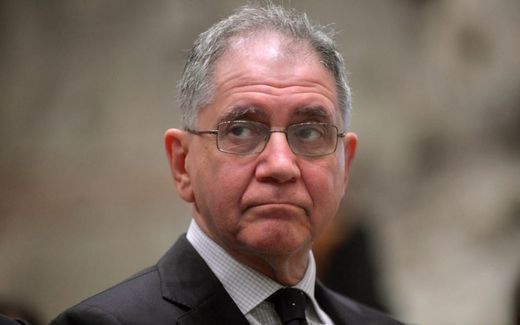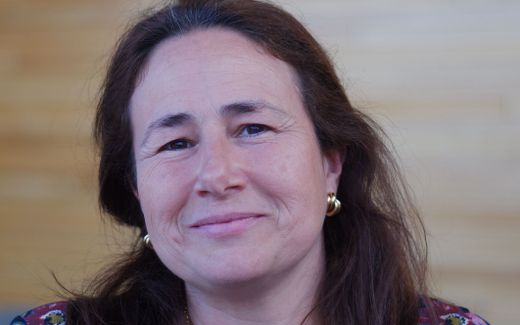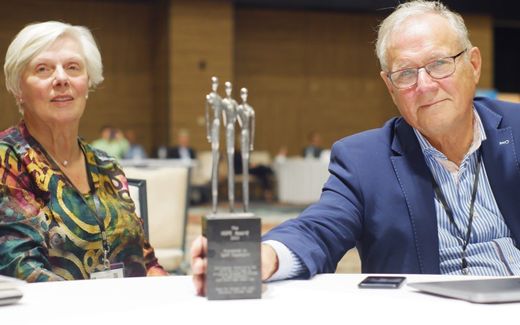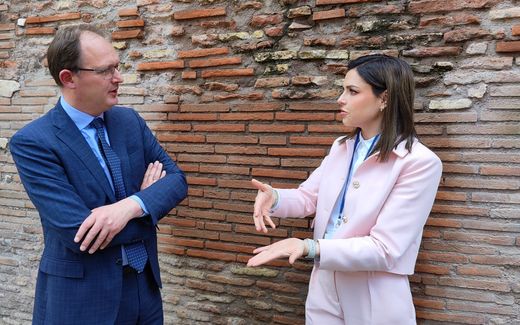Evert’s comment: Why should I vote in the EU elections?
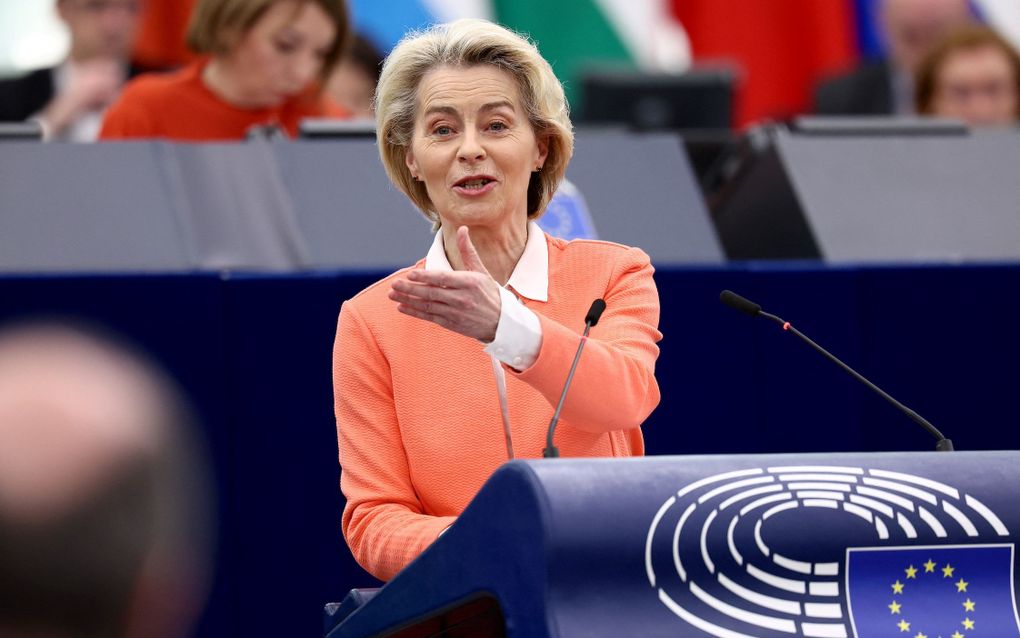
Ursula von der Leyen, the German President of the European Commission and top-candidate of the European People's Party (EPP). Photo AFP, Frederick Florin
European Union
Love is the greatest of all, the apostle Paul says. But Christian love cannot be regulated by laws. So, why should I vote for the European Parliament then? Well, there are at least four reasons.
From Thursday to Sunday, citizens will cast their votes for the European Parliament (EP). More than 400 million people were invited to express their choice. After this, the 720 elected members of the EP will decide on proposals from the European Commission and the European Council.
We know many (if not most) citizens get easily confused in the legal jungle of the EU. Therefore, turnout in the European elections is low. And yes, why should I go out voting then?
1. Helping peace
It was an eye-opener for me, this small sentence in the election package of the European Evangelical Alliance: “Love cannot be regulated. It must be freely given.”
I have been reflecting on this, and it is true. No earthly authority can legislate that we love each other. On the contrary, if such a law were given, we would end up in an Orwellian situation.
But love is not useless for lawmakers. They can be inspired by it. Stimulating peace in the world, for instance, is an expression of love. The European Union itself started as a peace project after the Second World War, and the EU is still able to help countries and regions live peacefully.
At the moment, there are a few situations in which the EU can stimulate peace:
- Ukraine;
- Nagorno-Karabakh;
- Israel and Gaza.
By voting for the European Parliament, you can express your wish for a solution to those problems. Because in each case, there are choices to be made.
Ukraine, for instance: Should the EU send more weapons and even troops to stop Russia? And how fast should Ukraine’s accession to the Union go, and how keen should we be on corruption there?
Take Karabakh; how strict do we have to be on Azerbaijan after removing the Armenians from the region? Is this ethnic cleansing?
And then Israel: Is it enough for the EU to say that Israel has the right to exist and to defend itself against terrorism? Or is it better to punish the Jewish country for carelessness in Gaza?
In all these cases, Europeans’ opinions differ. We agree that we should stimulate peace but disagree about how to do this. Therefore, voting so your MEP says the right thing is reasonable.

2. Christian voice
By voting, you can enhance the Christian voice in the European Parliament. In many policy issues, it makes a difference what view of man you take. The Christian idea of the human being as created in the “image of God” gives a different perspective on many issues than a materialistic worldview.
Whether you can vote for an outspoken Christian candidate differs from member state to member state. The European Christian Political Movement connects parties from at least fifteen countries in a joint election manifesto. More than the Christian Democratic European People’s Party, the ECPM speaks explicitly about Christian perspective on issues, although also the EPP facilitates this. For the European Union, such voices must be represented in parliament.
3. Creating the right majority
The European Parliament sometimes looks like a platform for all progressive world-changing ideas. A few months ago, a majority supported the resolution to enshrine abortion in the European Charter, as France did in the Constitution. In the EP, this initiative had no legislative effect, but still.
Currently, there is a European citizen’s initiative (ECI) in EU countries to gather signatures to do the same. However, with this difference based on an ECI, the EP can give mandatory instructions to the European Commission to develop a follow-up.
For those cases, having a majority in the European Parliament that shares as much of a Christian worldview is important. Sooner or later, other issues will come up. Take, for instance, the definition of a family: the classical model or the patchwork variations. It is clear that the European Commission will never forward a proposal if the majority of the European Parliament will reject it. So, it is crucial that we vote and fill the hall with the right people.

4. Voting is delegating trust
Voting creates a connection with your delegate since you send a message of trust to them. That is quite something. In politics, it sometimes seems that mistrust is ruling. But it all starts with trust. By voting, you delegate somebody to represent you. You put faith in him for a mission.
Trust creates hope. You expect that your delegate will really do what he has promised. And yes, because of this, politics can be disappointing, too. Nevertheless, giving trust is a positive act in itself.
Prayer
This week, I read that a church in Rome had come together for an evening of “prayer and orientation” in preparation for the European elections. Chiara Lamberti wrote about that in Loci Communes.
This is a good thing. That shows that this church takes the elections seriously. But it also shows that the choice is not easy or self-evident.
In countries with a tradition of Christian parties, you could say that those prayers have already been done years ago, and that the orientation has taken place. But in Rome, they do this anew to practice their “royal ministry”, as Lamberti called it. And that is always good. A ministry is of a continuing spiritual nature and should, therefore, be fulfilled in a praying manner.
Related Articles


